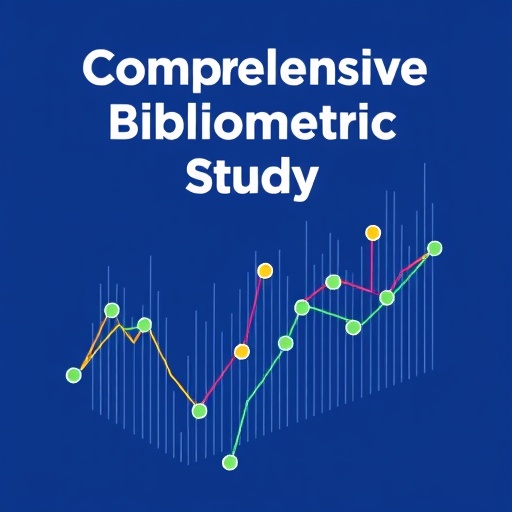In an era where education intersects with technology more dynamically than ever, the emergence of educational technology (EdTech) represents a revolutionary shift in pedagogical paradigms. With a clarion call for modernizing educational practices, the latest bibliometric analysis presented in a study by Fiskawarni et al. offers a comprehensive overview of research trends between 2010 and 2024 in this transformative field. The findings not only highlight significant changes but also provide insight into the complex interplay between technology and assessment within educational systems globally.
The study emphasizes the exponential growth of literature surrounding educational technology, showcasing an alarming increase in research contributions over the last decade. This surge is indicative of the rising recognition of EdTech as a vital component in enhancing learning outcomes and creating equitable educational opportunities. Between 2010 and 2024, the realm of EdTech has cultivated an environment rich with innovation, prompting educators and researchers alike to delve deeper into the implications and effectiveness of these technologies in various educational contexts.
Fiskawarni and colleagues also note the pivotal role of digital assessment tools in reshaping evaluation methodologies. As traditional modes of assessment begin to yield to more innovative and interactive methods, educational institutions are gravitating towards platforms that facilitate real-time feedback. Such tools not only enhance student engagement but also enable educators to tailor their approaches in line with individual learning needs. This bespoke method of assessment marks a significant shift from one-size-fits-all strategies, aiming to nurture a more personalized educational experience.
Among the study’s revelations is the geographic distribution of published literature within the field. The analysis reveals a disproportionate concentration of research output from developed countries, highlighting disparities in EdTech accessibility and implementation. While nations with advanced technological infrastructures continue to lead the charge in EdTech research, developing countries lag behind, often hindered by limited resources. This discrepancy urges stakeholders to invest in educational technologies that could bridge the gap between diverse educational ecosystems worldwide, thereby fostering a more inclusive approach to learning.
Moreover, the analysis underscores the collaborative nature of EdTech research, with a notable increase in co-authorship among published works. Collaboration between institutions, scholars, and practitioners fosters a more integrative understanding of educational technology applications. Consequently, this trend signifies a collective effort to unify knowledge across disciplines, exemplifying how educational research is evolving as an interdisciplinary venture. Such cooperative endeavors may serve as a blueprint for future research, encouraging diverse perspectives that enrich the field.
The study also highlights emerging themes within EdTech research, including artificial intelligence (AI), personalized learning, and data analytics. These themes reflect the innovative technologies shaping the educational landscape, which have garnered substantial scholarly attention. As AI generates an increasing amount of discussions regarding its potential to revolutionize assessment methods and learning experiences, researchers are urged to explore the ethical implications and necessary practices for its effective integration within classrooms.
The interdisciplinary nature of EdTech research extends to its practical applications in diverse educational settings. The bibliometric analysis reveals that various sectors, including K-12 education, higher education, and corporate training environments, are increasingly adopting technological solutions tailored to their unique needs. This diverse implementation underscores the growing recognition of the need for a multifaceted approach to educational technology, recognizing that different contexts necessitate varied frameworks for success.
A significant finding of the study is the lag in assessing the long-term impacts of EdTech interventions. While numerous studies explore short-term benefits, there remains a gap in longitudinal research that examines the sustainability and influence of implemented technologies over time. Understanding the durability of such technologies in real-world educational contexts is crucial for informing future research and policy decisions, while also guiding the investment of resources towards the most effective tools and methodologies.
Moreover, the analysis points to an increasing focus on equity and inclusivity within EdTech research. As educational technologies become widespread, there is a growing recognition of the need to address issues of accessibility and representation within these innovations. Ensuring that all learners, regardless of their backgrounds or circumstances, can benefit from educational technologies is paramount for achieving an equitable educational experience. Consequently, researchers are called to advocate for inclusive designs that prioritize all students.
In conclusion, the bibliometric analysis conducted by Fiskawarni et al. serves as a vital resource for understanding the current landscape and trends in educational technology research. Its findings not only shed light on the evolution of EdTech from 2010 to 2024 but also call for a deliberate and informed approach to navigating its complexities. Educators, researchers, and policymakers alike must take heed of these insights to fine-tune their strategies and reinforce the transformative potential of educational technology across varied learning environments.
As the investigation into the interplay between educational technology and assessment continues, the call for collaboration, ethical considerations, and inclusive practices resonates louder than ever. The future of education hinges on the ability to adapt, innovate, and ensure that technological advancements serve all learners equitably and effectively, thereby refining the educational landscape for generations to come.
Subject of Research: Educational technology and assessment
Article Title: Educational technology and assessment: a comprehensive bibliometric analysis (2010–2024)
Article References: Fiskawarni, T.H., Nurfadilah, N., Saad, R. et al. Educational technology and assessment: a comprehensive bibliometric analysis (2010–2024). Discov Educ 4, 451 (2025). https://doi.org/10.1007/s44217-025-00872-1
Image Credits: AI Generated
DOI: 10.1007/s44217-025-00872-1
Keywords: Educational Technology, Bibliometric Analysis, Assessment, AI, Personalization, Equity in Education, Longitudinal Research.




